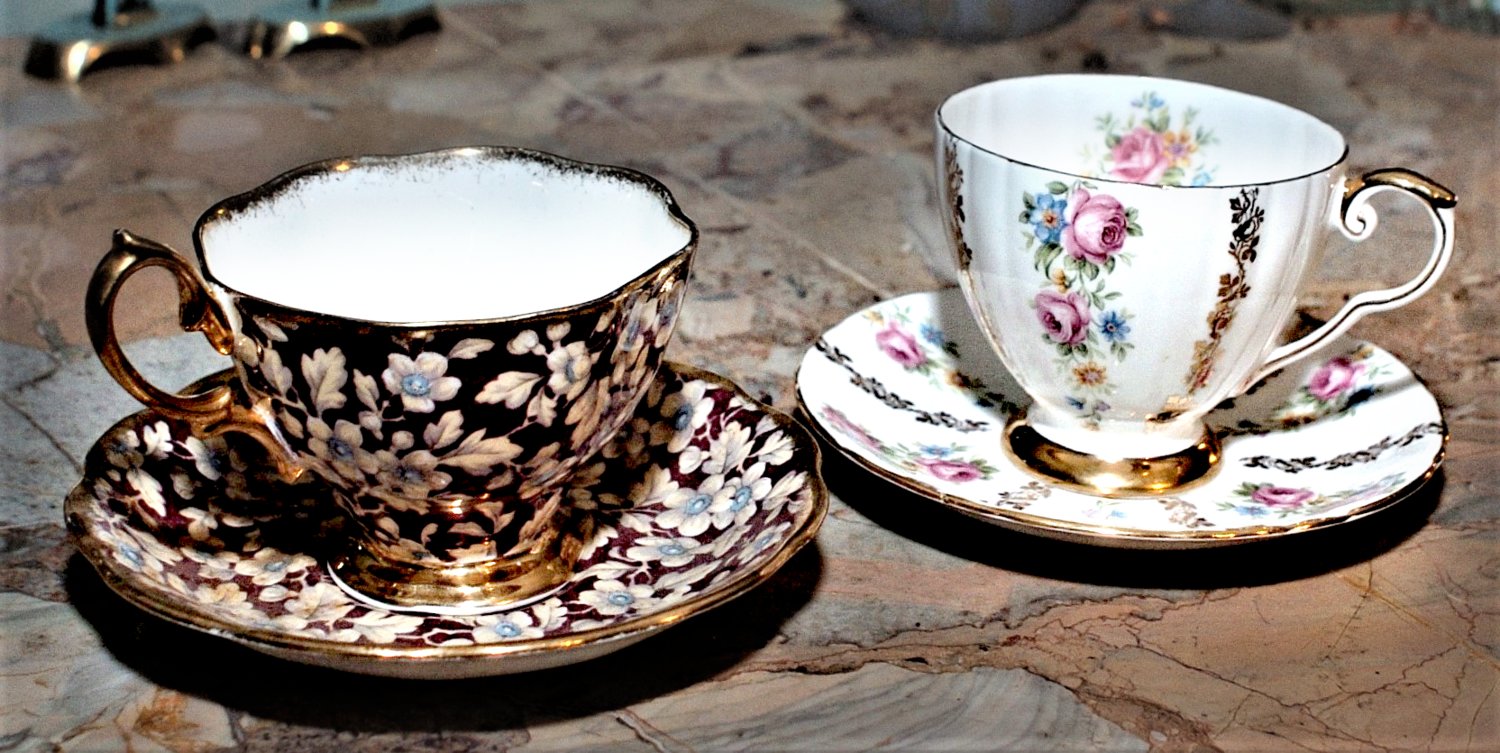The beautiful tea cups nobody wants
To be honest, I am not a fan of Facebook, nor do I know how to access the site. Email and the phone keep me in touch with family and friends, and with community and personal events. Yet it was a post on Facebook that gave rise to this column.
Though I prefer other means of communication, my progeny enjoy Facebook contacts and comments from friends and former schoolmates.
Last November, Paul Formal, once a classmate of my daughter Judith, posted a photo of a stack of tea cups with the caption “… beautiful family things and the younger people don’t want or appreciate.” Judith, knowing what my reaction would be, sent it on to me.
Sitting in our storage unit is a red-zippered case with three-dozen hand-decorated English bone-china tea cups, each one different from the others. My mother, Chaya Segal, received most as gifts over the years from her family in Montreal, and our purchases augmented her collection of these “odd cups.”
Though they may admire them, none of my younger generation wants the delicate beauties; they do not fit their lifestyle.
But back in the day, our tea cups were not mere ornaments on a shelf in the breakfront in the dining room. I say “our” because we pooled and shared them, as occasions required.
The tea cups were present at family get-togethers and holiday celebrations, and they also had a larger purpose for my mother. Although she worked as a Hebrew teacher and studied Judaism, she still found time to volunteer her energy and her home on behalf of community causes.
Present at these gatherings, large or small, were the tea cups. They had a role to play in the meetings, be they on behalf of a visiting poet or scholar, or for emissaries from national organizations, or for planning a concert or fundraising luncheons, or for a bride in need of a wedding dress, or for touring women musicians in need of gowns, or for outreach to newcomers to Providence.
Two organizations were frequent guests in the Segal home. The Chug Ivri, or Hebrew Circle, brought together educators and laypeople fluent in Hebrew for programs, such as lectures and discussions, in that language. The other group, Pioneer Women (now Na'amat USA), supported scholarships and social services for women and at-risk teens, as well as child-care facilities of their sister organization in Israel.
The business portion of the meetings was followed by a social chat, along with a cup of tea in one of the odd cups arrayed on the side table and a cookie from the sweets arranged on a doily-covered tray. The distinctive, delicate cups added a festive air to the gatherings, and there were always enough to serve all present at even the largest meeting.
These days, sadly, most meetings are virtual. But even before the pandemic, few meetings took place in homes. Coffee has replaced tea as the social beverage, and the remaining tea drinkers in my family prefer a mug to a cup. So the delicate odd cups languish in their red case in the storage unit.
How much we could learn if they could talk!
GERALDINE S. FOSTER is a past president of the R.I. Jewish Historical Association. To comment about this or any RIJHA article, contact the RIJHA office at info@rijha.org or 401-331-1360.








